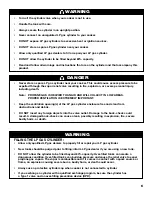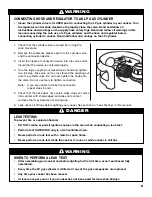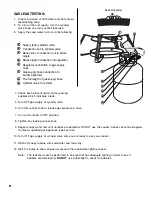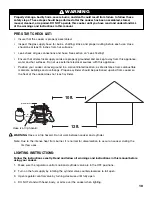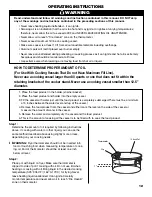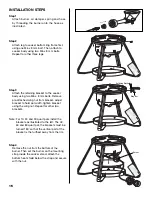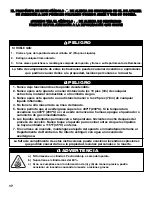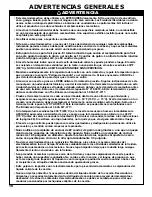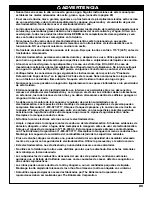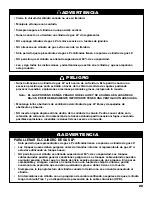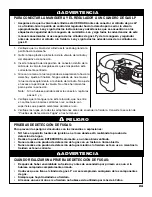
GAS LEAK TESTING:
1. Create a mixture of 50% water and 50% liquid
dishwashing soap.
2. To turn on the fuel supply, turn the cylinder
valve knob one turn counterclockwise.
3. Apply the soap water mixture to the following:
Supply tank (cylinder) weld
Connection nut to cylinder valve
Back side of connection nut to brass
nipple
Brass nipple connection into regulator
Regulator connection to gas supply
hose
Gas supply hose connection to
burner assembly
The full length of gas supply hose
Cylinder valve to cylinder
4. Check each place listed (A-H) for growing
bubbles which indicates a leak.
5. Turn OFF gas supply at cylinder valve.
6. Turn ON control knob to release gas pressure in hose.
7. Turn control knob to OFF position.
8. Tighten any leaking connections.
9. Repeat soapy water test until no leaks are detected. DO NOT use the cooker if leaks cannot be stopped.
Contact a qualified gas appliance repair service.
10. Turn OFF gas supply at cylinder valve until you are ready to use your cooker.
11. Wash off soapy residue with cold water and towel dry.
12. Wait 5 minutes to allow all gas to evacuate the area before lighting cooker.
Note:
The leak test must be performed in an area that has adequate lighting in order to see if
bubbles are developing.
DO NOT
use a flashlight to check for bubbles.
9
IMP
ORTANT SAFEG
UAR
D
• DO
NO
T RE
MO
VE T
HIS T
AG •
T U
R
N
G
A S
O
N
A
N
D
O
U
S IN
G
V A
L V
E O
N
L .P
. G
A S
T A
N
K . U
S E
T H
IS
R
E D
C
O
N
T R
O
L V
A L
V E
F O
R
F L
A M
E A
D
J U
S T
M
E N
T
O
N
L Y
.
A
B
C
D
E
F
G
H
A
B
C
D
E
F
G
H
Watch For Bubbles
Summary of Contents for 4010 series
Page 34: ...33 ...







